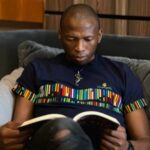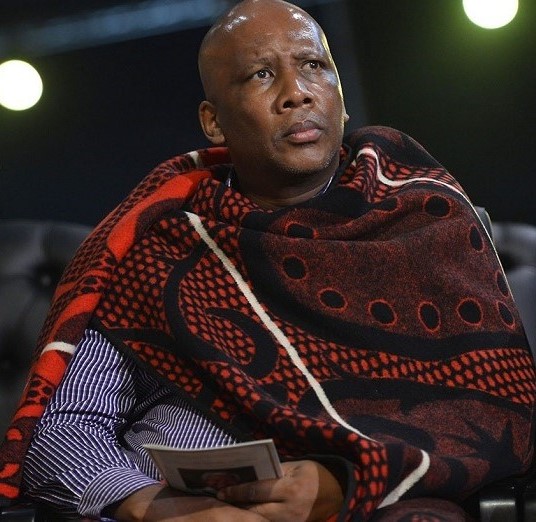Likhapha Ntlo-Ea-Lefu
Having His Majesty King Letsie III continue serving as a constitutional monarch today reinforces the selfish interests of political leaders, enriches them, and leaves a vacuum for critics of traditional leadership to be heard.
Born on July 17, 1963, King Letsie III first temporarily ascended to the throne in 1990 after his father, King Moshoeshoe II, was forced into exile by the military regime.
In 1994, King Letsie III dissolved the democratically elected government of Prime Minister Ntsu Mokhehle, prompting the return of his father. This was not the first time King Moshoeshoe II had been exiled; he had also been sent away during Prime Minister Jonathan Leabua’s era, both times in a struggle for executive powers that he was ultimately denied.
After King Moshoeshoe II’s death in 1996, King Letsie III permanently took the throne.
For two full decades, His Majesty King Letsie III has celebrated his birthday by alternating the festivities among Lesotho’s ten districts each year. This tradition began in 2004, with Mokhotlong district serving as the first host, and in 2024, the celebrations took place in Botha-Bothe district.
Next year, the celebrations will move to another district.
Over the years, the government has spent millions on these birthday festivities. Last year, when the event was held in the Maseru district, Newsday and Lesotho Times reported that the Government Secretary (GS) estimated M5.6 million would be spent on the celebrations.
It was prior the D-Day and post the birthday, these newspapers revealed that a total of M20 million was exhausted for the ceremony held at the Setsoto Stadium, which is banned from hosting international games.
Lately, this event has become substantially infamous amongst Basotho. The scores of Basotho, which I share their sentiments, favour the exercise of these millions for impactful developmental projects.
Again, the Public Accounts Committee (PAC) has since discovered how the King Letsie III’s birthday funds are often embezzled and plundered. Tender processes are mired in corruption, and expenses are often inflated.
In the past decade, the government has not made sufficient efforts to transform Lesotho into a developmental state.
Instead, we find ourselves caught in self-destructive politics that misuse the country’s financial resources.
As a result, we have neglected the “big five” areas identified by Wangari Maathai in her book The Challenge for Africa: agriculture, education, health, infrastructure, and energy.
These sectors represent critical investments in development that could effectively eradicate poverty, as Wangari aptly points out.
Billions have been spent on elections, often misappropriated in the process.
King Letsie III, constrained by the Constitution, finds himself unable to address these issues directly. His role is limited to making speeches in Parliament every two to five years, depending on the government’s term, traveling the globe from London to Nordic countries seeking investors, serving as the Chancellor of the National University of Lesotho, promoting nutrition in a country where hundreds of families face severe famine, and making public appearances for his annual birthday celebrations.
When it comes to decisions that could change the nation, the King must act on the advice of the Prime Minister.
With King Letsie III’s status as a ceremonial monarch, constitutional law expert Professor Hoolo ‘Nyane correctly points out that this arrangement is counter-intuitive and costly.
The government spends substantial amounts to maintain the monarchy, even though it plays no role in holding politicians accountable. As a result of the growing unemployment and poverty, social media users have increasingly expressed their frustration and criticism toward the Royal Family.
Princess Senate Mohato Bereng Seeiso has faced trolling for her alleged inability to speak her native language, Sesotho, and for her graduation from the Faculty of Social Sciences in Canada, which has sparked mixed reactions among the public.
Despite the criticisms, the monarchy still holds legitimacy among Basotho.
In the absence of benevolent, decisive, and enlightened political leadership to guide the economy and politics in the right direction, an Afrobarometer survey indicated that many Basotho believe His Majesty should be granted absolute powers. While King Mswati III has highlighted the dangers associated with absolute monarchy, some argue that it may be time for King Letsie III to have a dance with power.
As Professor Hoolo ‘Nyane argues, King Letsie III should be granted some powers to construct checks and balances between the monarch and liberal politicians.
Again, it is insensible to have the complete participation of this institution tied and contained in this era. It benefited colonisers to have ceremonial monarchs in the past.
Today, it profits self-centered politicians.
Further, King Letsie III, in comparison to King Mswati III, has not flaunted and misused his hereditary position to bring the Royal Family and this country into disrepute. His respected and charismatic contact has been outstanding win representative moments for this country.
Give the monarch power but not absolute power.
Summary
- Having His Majesty King Letsie III continue serving as a constitutional monarch today reinforces the selfish interests of political leaders, enriches them, and leaves a vacuum for critics of traditional leadership to be heard.
- It was prior the D-Day and post the birthday, these newspapers revealed that a total of M20 million was exhausted for the ceremony held at the Setsoto Stadium, which is banned from hosting international games.
- His role is limited to making speeches in Parliament every two to five years, depending on the government’s term, traveling the globe from London to Nordic countries seeking investors, serving as the Chancellor of the National University of Lesotho, promoting nutrition in a country where hundreds of families face severe famine, and making public appearances for his annual birthday celebrations.

Your Trusted Source for News and Insights in Lesotho!
At Newsday Media, we are passionate about delivering accurate, timely, and engaging news and multimedia content to our diverse audience. Founded with the vision of revolutionizing the media landscape in Lesotho, we have grown into a leading hybrid media company that blends traditional journalism with innovative digital platforms.










